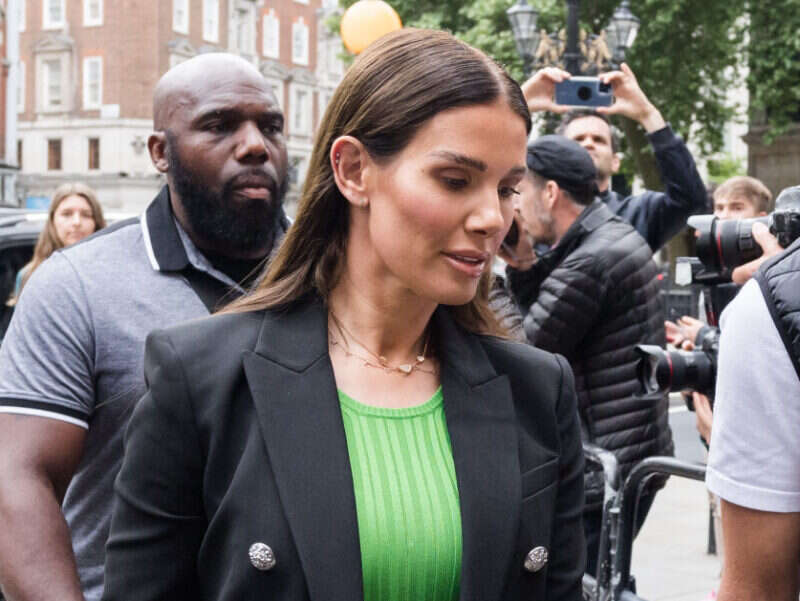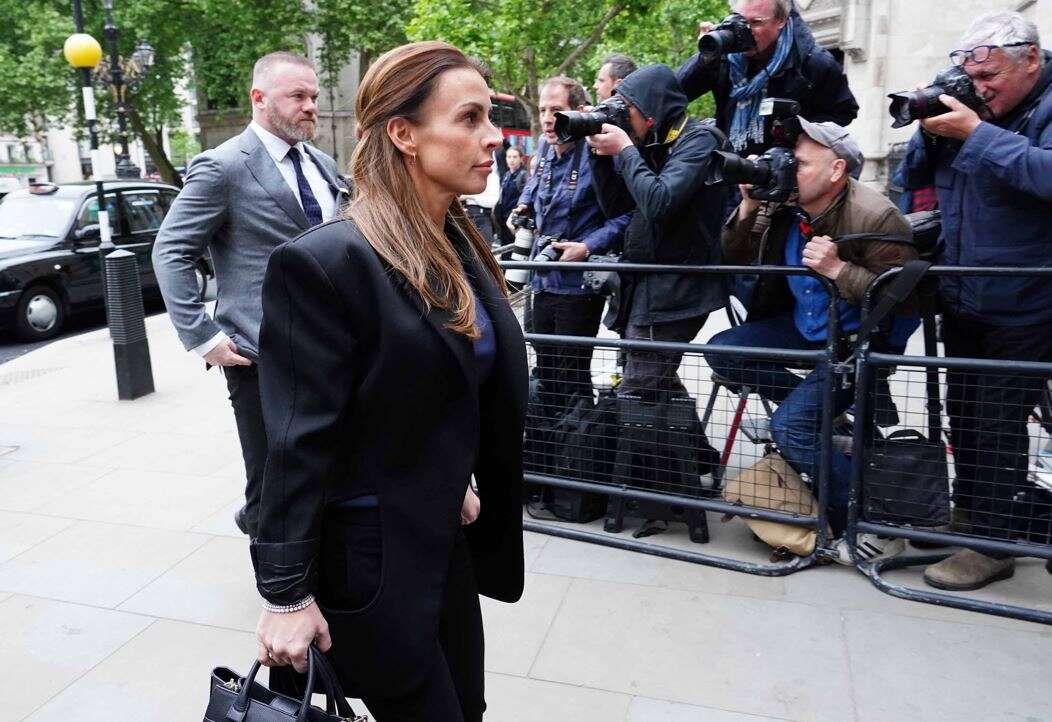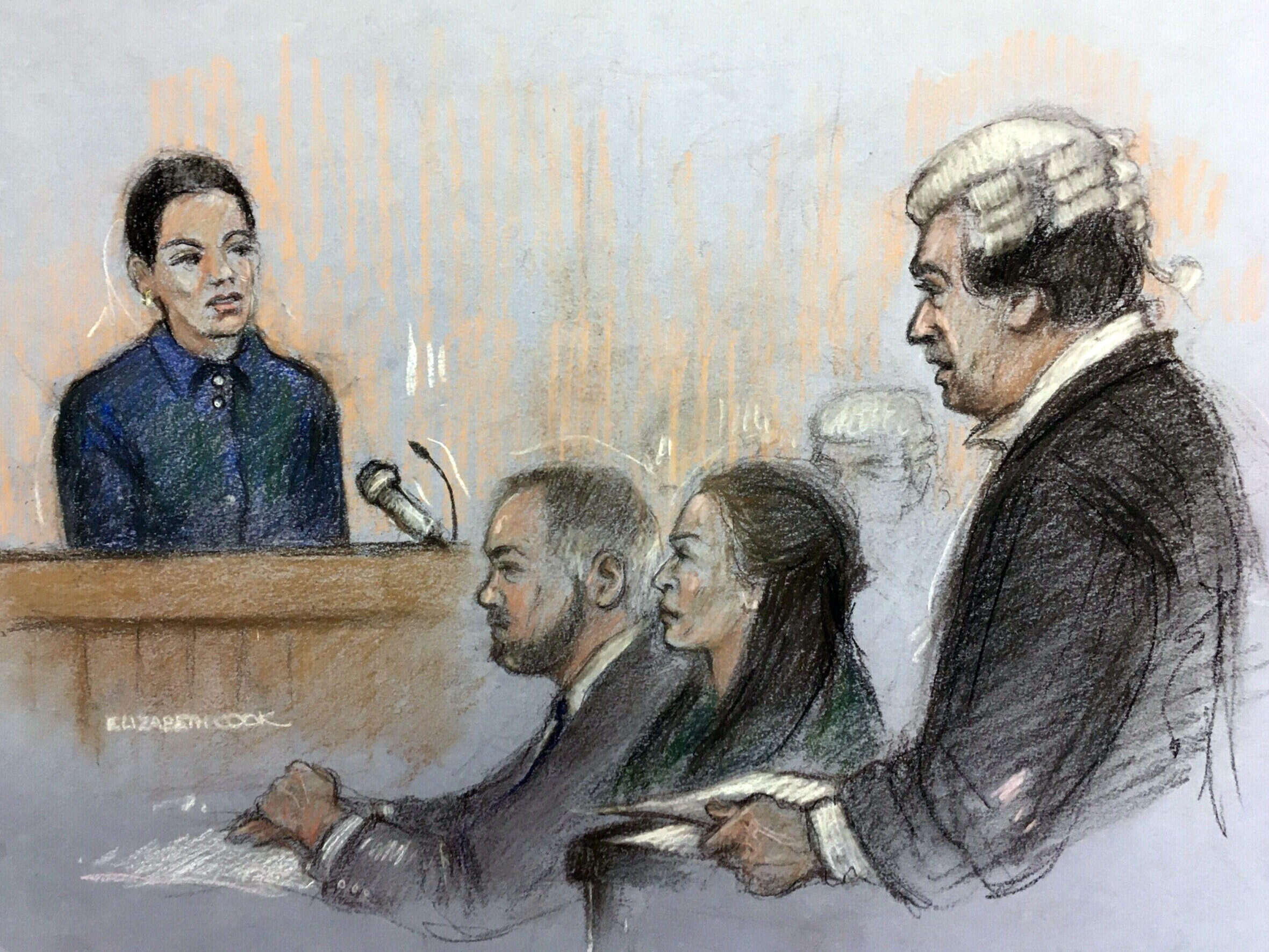
It has brought the nation together, uniting seemingly bitterly opposed factions in common delight, almost as if we’d won the World Cup. Yes, the ‘Wagatha Christie’ case has been joyous for everyone, particularly the handsomely-paid lawyers and the less-well remunerated but still fortunate hacks sent to cover it and truly getting a ringside seat to history.
A joy for everyone, that is, except a handful of some most invested in the Wagatha Christie case: Rebekah Vardy, Coleen Rooney, their footballer husbands…and three or four court artists.
These artists have been the butt of almost as many jokes as Vardy and Rooney as wags – the original kind of wag, as in wit, rather than footballers’ wives – vie for the funniest way of describing each new two-dimensional depiction of the drama unfolding at the High Court.
“Thanks to the court artist for allowing us to imagine what it would look like if the Rooneys were at Agincourt,” went one. “Never mind suing Rebekah Vardy, I’d be suing the court artist if I was Coleen,” another. One simply said of a likeness of Wayne Rooney: “Potato.”
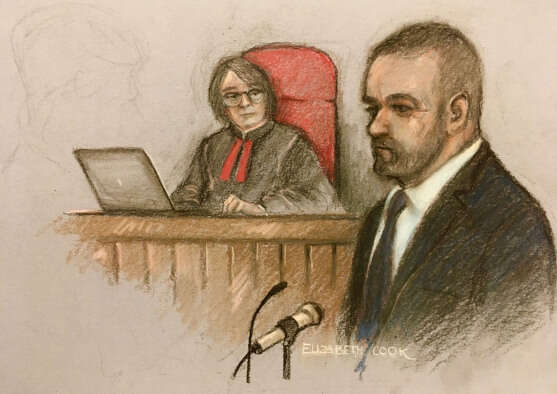
Court artist sketch by Elizabeth Cook of Wayne Rooney giving evidence at the Royal Courts Of Justice, London, as the high-profile libel battle between Rebekah Vardy and Coleen Rooney continues. Picture date: Tuesday May 17, 2022. Picture: PA Wire/Elizabeth Cook
This sideshow has stung me as I have a long-standing fondness for court artists. They are fellow travellers with us journalists and I’ve grown to admire them and to revere their craft.
I covered the courts myself half a lifetime ago as an agency reporter, at the Old Bailey, the High Court and others. It was stressful enough trying to accurately record and then quickly quote back the key verbal exchanges, even after months of intensive Teeline training during NCTJ. Quotes could easily be garbled or misheard, the point missed, the sense wrong. So imagine not just trying to quote a witness accurately but attempting to draw them thus.
The demands on the court artist are terrifying.
That the job exists at all is, of course, a consequence of our arcane judicial system which, despite years of discussion, continues to refuse to admit cameras. Hence this niche trade in making rapid sketches of the famous and infamous in the dock or the witness box to feed intense media demand.
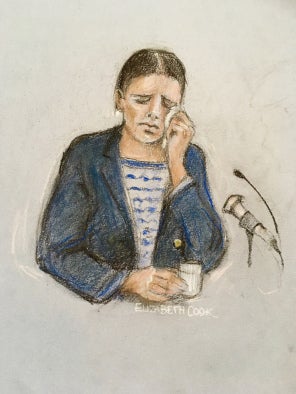
Court artist sketch by Elizabeth Cook of Rebekah Vardy wiping away tears as she gives evidence at the Royal Courts Of Justice, London, during the high-profile libel battle between herself and Coleen Rooney. Picture date: Thursday May 12, 2022. Picture: PA Wire/Elizabeth Cook
And these aren’t life drawings of models in static repose. Rebekah Vardy in particular was, by all accounts, highly animated, often tearful, her face a moving tableau articulating perhaps an inner realisation that this case may not have been the best plan after all.
The court rules further inhibit the artists by refusing to allow them to do any sketching while the case is ongoing so they can merely study their subject in action visually before retiring to the press room to recreate what they’ve watched with pastels.
This strict rule was illustrated on Monday this week when a rogue amateur not conversant with these procedures began live sketching in Vardy vs Rooney and was given a hasty insight into the contempt of court law by irate ushers.
There is also the pressure of time: the clock is always ticking, in the morning session counting down to the deadline for evening print editions and lunchtime TV news bulletins, in the afternoon to the first edition daily newspaper deadlines and early evening news shows. And the websites want as many new updates in between as they can get.
Goodness knows it can be hard to compose 700 coherent words in 90 minutes so imagine having to draw a recognisable picture.
That they are able, with all these constraints, to consistently produce images in which their famous subjects can be immediately identified is quite miraculous. It’s also worth pointing out that, in truth, Wayne Rooney has always had something of the potato about him, so I’m not sure that likening a picture of him to one is quite the searing critique its author intended. In fact, it rather suggests the artist may have captured his likeness pretty well.
‘Pretty vicious stuff’ for ‘Wagatha Christie’ court artists
Priscilla Coleman has been in the game since the late seventies, first in her native Texas before setting up in London almost 40 years ago, and is now the profession’s most established and respected artist. She’s been sketching the Wagatha case daily, turning out as many as five pieces a day throughout – and, it’s worth pointing out, her work has escaped the worst of the criticism.
Her portfolio includes court appearances by the great and the good (Tony Blair, Liz Hurley, Naomi Campbell) and the not so good (Fred and Rose West, Dr Harold Shipman).
Priscilla – whose manner under pressure is impressively serene – told me: “There does seem to have been an increase in the amount of attention and criticism recently. One or two of my colleagues have been on the receiving end of some pretty vicious stuff during the Vardy-Rooney case. We even seem to get dedicated trolls lately. The only way to deal with it is to be confident in your work and not to take it to heart.”
She also points out that, as in most areas of the media, the pay rates have remained static or gone down while demands on time and energy have continued to rise.
I’m so fond of the genre that I think something in our culture would be lost were we finally to admit photographers into proceedings and render the court artist redundant. (And, having worked close to both, I’m not sure the respective cultures of press photographers and the judiciary are entirely compatible).
In a world where seemingly everyone either wants to be or is an Instagram influencer – though NB Rebekah: not all their accounts are set to be viewed by all their followers – the court artists provide a peculiarly quaint visual chronicle of our time. We should celebrate them.
Email pged@pressgazette.co.uk to point out mistakes, provide story tips or send in a letter for publication on our "Letters Page" blog

